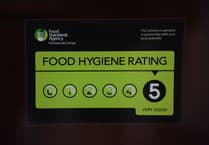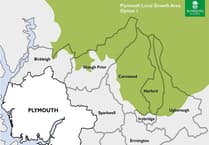Many people in the South Hams are losing hope of being able to find a permanent home, according to a new and hard-hitting report.
The research by Citizens Advice South Hams and the University of Plymouth has revealed the extent of, and problems caused by, Hidden Homelessness and suggested how these could be tackled.
It found there are potentially thousands of people across the South West who are not living on the street, but finding themselves in various and precarious housing situations through little or no fault of their own.
This results in them having to sofa surf, share overcrowded accommodation or move back into unsuitable living arrangements.
The report says this has been caused by the combination of a lack of affordable housing to rent or buy, continued rising rents and house prices, competition from the holiday and second home market, low wages and high interest rates, all of which show little signs of letting-up.
It also hopes and to suggest ways of easing the situation for an under-researched but growing problem for society.
Citizens Advice South Hams Chief Executive, Janie Moor, said:
“We believe there are thousands of people living in despair of ever finding a stable home.
This reality is becoming entrenched as there seems to be no end in sight to rising rents and house prices caused by lack of new homes and competition from the holiday market.
Our advisers are seeing more people who are sofa surfing, living in totally unsuitable accommodation or having to continue living with partners or relatives long after a relationship has broken down.”
The report covers the South Hams, Plymouth and Cornwall, and includes first hand testimony from people who are experiencing Hidden Homelessness, the views of housing charities and an analysis of the situation.
Based on those discussions, it proposes a standard definition of Hidden Homelessness that is says should include: people who are sofa surfing, people living with others in overcrowded accommodation but unable to move out, people living with someone when the relationship has broken down and people who are living with parents where this is causing a problem.
Janie Moor added:
“During the research for this report, we heard of people living in terrible conditions with no light at the end of the tunnel. People often have to wait until they are threatened with homelessness or actually on the street before they can access any help.”
Jon, 42, lost his business during the Covid pandemic and had to give up his flat.
He moved in with his parents in a very rural part of the South Hams.
Although Jon has now been able to find a new job in the area, he can’t afford any local rents and will have to stay with his parents for the foreseeable future.
Jon’s mother, Mary, says: “Jon has now got a full-time permanent job and is earning a reasonable salary. But he cannot afford to rent at those sorts of rates, and he needs to live near our area (in the South Hams) for his work.”





Comments
This article has no comments yet. Be the first to leave a comment.